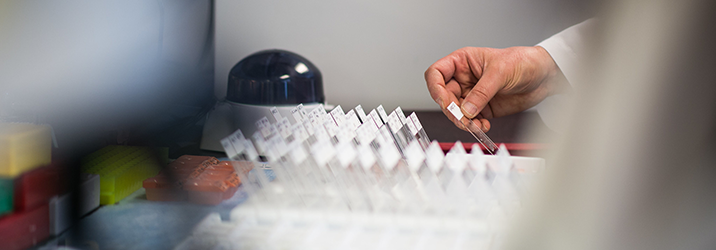Key Facts About Clinical Trials

1. Safety Is the Top Priority
To protect your safety, researchers must go through many steps to prove the treatment or intervention being studied is as safe as possible and might be better than standard treatments. This starts with many years of research in the lab, looking at how the treatment works in cells and animals.
For all clinical trials, the study team develops a detailed plan called a protocol, which explains how the study will work and the possible risks and benefits. The team also must get approval from an Institutional Review Board, or IRB. This group is tasked with protecting people who join studies. They review the plans and monitor the study to ensure safety.
If at any point, the research team or IRB suspects that the risks of the study intervention outweigh the benefits, they will stop the study immediately and you will be informed.
2. Everyone in a Clinical Trial Gets Quality Health Care
There’s no guarantee that a study treatment or intervention will benefit the participant. The study intervention may not cure your cancer or extend your life. But researchers will only offer a study treatment if they believe the outcome will be at least as good as the standard treatment.
Phase 1 and 2 trials test only the new treatment, which researchers believe might work better or have fewer side effects than standard treatments.
Phase 3 trials often assign people randomly to receive the new treatment or the usual treatment. The study is designed to compare how effective the treatments are.
When are placebos used?
A placebo is a harmless pill or injection that looks the same as the actual treatment but has no effect. These are rarely used in cancer care, but could be part of a study if:
- There are no known treatments that work (in other words, if standard treatment = no treatment)
- The new treatment is being added to a standard treatment. One group would receive the new treatment and the other would not, but both groups would be receiving the standard treatment.
The research team must tell you if a study uses a placebo.
3. Clinical Trials Help Future Patients
When you join a clinical trial, you help add to our knowledge of the best way to prevent, find and treat cancer.
Many people join clinical trials because they hope the study treatment will help them more than the usual treatment. There is a chance this could happen, but it’s not guaranteed.
Every clinical trial helps us make progress. Even though researchers expect the treatment they are testing will be better, clinical trials are necessary to prove that.
4. Being in a Clinical Trial Is Your Choice
Only you can decide if you want to participate in a clinical trial. Your doctor and research team can help you understand your options and answer questions about the study.
You should also discuss your options with family or friends. But in the end, consider your own goals and values to decide if a clinical trial is right for you.
What happens if I join a clinical trial?
You will be asked to sign an informed consent, stating that you agree to participate and understand the possible risks, benefits and costs. You can and should ask as many questions as you want and take the time you need to decide.
What if I later decide I want out of the study?
You have the legal right to withdraw from a clinical trial at any time for any reason. If you decide to withdraw, you can continue to be treated at the Rogel Cancer Center with the best standard therapies available for your type of cancer.
What happens if I choose not to be in a clinical trial?
You will still receive the best possible care for your cancer using standard treatments. You will not disappoint your doctor, even if they encouraged you to join.
5. Clinical Trials Should Not Cost You More
Clinical trials are sponsored by federal agencies like the National Institutes of Health or by private pharmaceutical or biotechnology firms. The costs of the clinical trial and the experimental therapy are covered by that sponsor.
Your insurance plan will usually cover the cost of tests and procedures that are part of standard medical care.
Before deciding to participate in a clinical trial, it is important to know exactly what will be covered by the trial's sponsor. Ask your doctor or the research team and check with your insurance company before you agree to volunteer.
Will I get paid for being a study volunteer?
Most cancer clinical trials do not provide payment for study volunteers. Some trials do offer a small stipend or reimbursement for certain travel expenses, child care, lodging or lost wages. The study team will include this information in the informed consent document.
6. Diversity Makes Clinical Trials Better
We need all types of people to enroll in clinical trials: young, old, all races and ethnicities. This is the only way we can make progress for all patients.
Anyone can develop cancer. Having a diverse group of participants helps us learn whether something works for all patients or just some. This is how we improve care for everyone.
What are eligibility criteria?
Eligibility criteria are rules are about who can and cannot join a trial. These rules
- Keep people safe
- Help researchers understand the results more clearly
Certain things can stop people from being eligible for a specific trial, such as having another disease or receiving a previous treatment.
Many cancer patients think they cannot participate in a clinical trial unless standard treatments stop working. This is not true. Many experimental drugs and treatments work best in the early stages of cancer. Whether you are newly diagnosed or poised to begin a new treatment, ask your doctor if a clinical trial is available for you.
